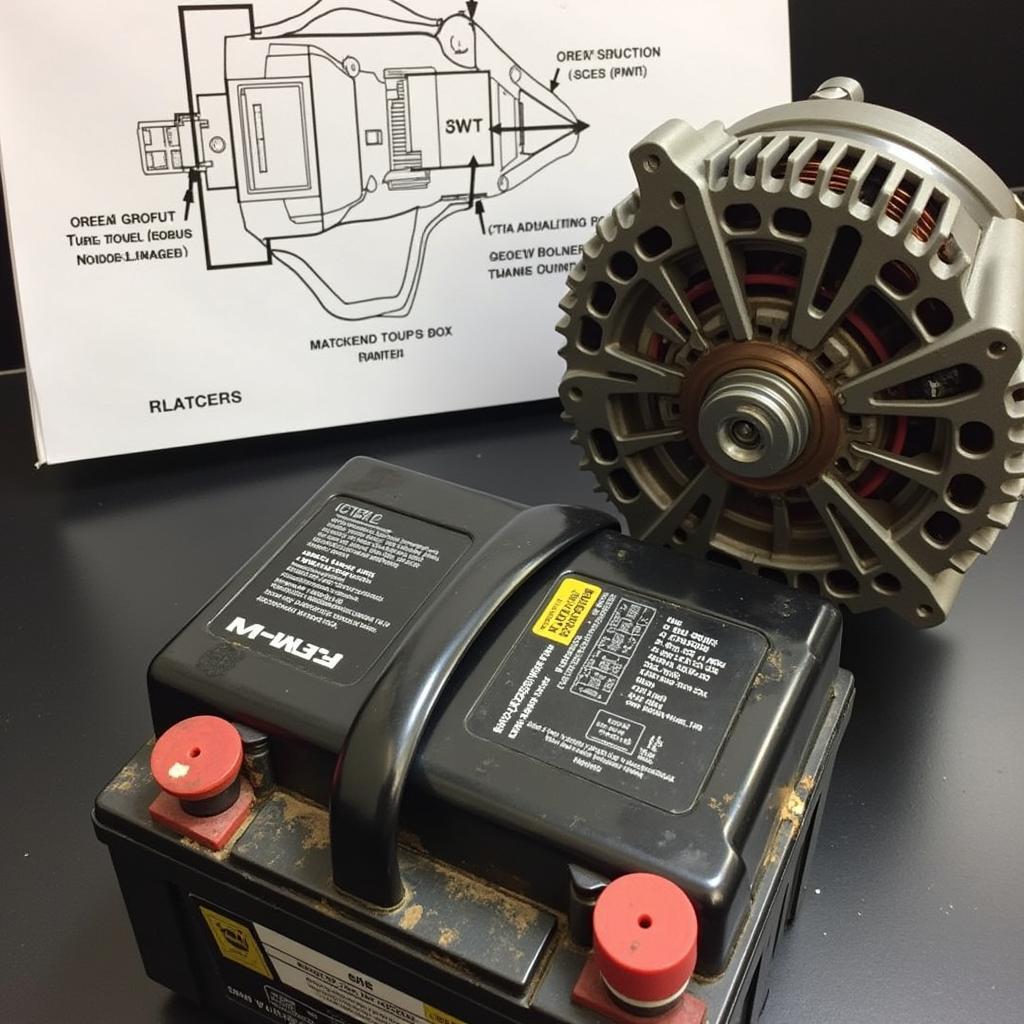Electrical problems are a common headache for car owners. From a flickering headlight to a complete engine failure, understanding What Causes Electrical Problems In Cars is crucial for both maintenance and troubleshooting. This article will delve into the various reasons behind these issues, offering insights for car owners, mechanics, and technicians alike.
A dead battery is often the first suspect in electrical issues, but the culprit can range from corroded connections and faulty alternators to damaged wiring and malfunctioning sensors. Let’s explore these issues and more, equipping you with the knowledge to tackle electrical gremlins head-on. Learn about car shipping problems in case you are shipping your car overseas or interstate.
Common Culprits Behind Electrical Issues
The Battery and Charging System
The battery is the heart of your car’s electrical system. A weak or dead battery can lead to a host of problems, including difficulty starting, dimming headlights, and malfunctioning accessories. Beyond the battery itself, problems within the charging system, such as a failing alternator or voltage regulator, can prevent the battery from receiving a proper charge.
- Battery Corrosion: Corrosion on battery terminals disrupts the flow of electricity. Regular cleaning with a baking soda and water solution can help prevent this.
- Alternator Failure: The alternator recharges the battery while the engine is running. A faulty alternator won’t charge the battery effectively, eventually leading to a dead battery and other electrical issues.
- Voltage Regulator Issues: This component regulates the voltage output of the alternator. A malfunctioning regulator can overcharge or undercharge the battery, shortening its lifespan and causing electrical instability.
 Car Battery, Alternator, and Charging System Problems
Car Battery, Alternator, and Charging System Problems
Wiring and Connections
Over time, wiring can become damaged, frayed, or corroded. Exposure to moisture, heat, and vibration can accelerate this process. Loose or corroded connections can also disrupt the flow of electricity, leading to various electrical malfunctions. Knowing how to identify and fix these issues is essential. Have you ever experienced any top 10 most common car problems?
- Inspecting Wiring: Regularly check your car’s wiring for signs of damage, such as cracks, fraying, or exposed wires.
- Cleaning Connections: Use a wire brush or contact cleaner to remove corrosion from electrical connections.
- Securing Loose Connections: Ensure all connections are tight and secure.
Fuses and Relays
Fuses and relays are essential safety devices that protect the electrical system from overloads. A blown fuse or faulty relay can interrupt the power supply to various components, causing them to malfunction. Check for problems with car tyres as this can be the source of some problems.
- Checking Fuses: Use a test light or multimeter to check if a fuse is blown. Replace blown fuses with the correct amperage rating.
- Testing Relays: Relays can be tested using a multimeter or by swapping them with a known good relay.
What Causes Intermittent Electrical Problems in Cars?
Intermittent electrical problems can be especially frustrating to diagnose. These issues can come and go without any apparent pattern, making it challenging to pinpoint the cause. Often, these problems are related to loose connections, faulty relays, or corroded wiring.
How to Troubleshoot Electrical Problems in Cars
Troubleshooting electrical problems requires a systematic approach. Start by checking the battery and charging system, then move on to inspecting the wiring, fuses, and relays. A multimeter can be a valuable tool for testing electrical circuits and components. If you are unsure about any step, consult a qualified mechanic.
“A common mistake is neglecting regular maintenance,” says automotive expert John Davis. “Simple checks like cleaning battery terminals and inspecting wiring can prevent many electrical problems down the road.”
Why is My Car Having Electrical Problems After Getting Wet?
Water and electricity don’t mix well. If your car has been exposed to heavy rain or flooding, water can seep into electrical components and cause short circuits, corrosion, and other issues. It’s crucial to dry out the affected areas as soon as possible and have a mechanic inspect the electrical system for damage.
Conclusion
Understanding what causes electrical problems in cars is the first step towards effective maintenance and troubleshooting. By addressing these issues promptly, you can prevent further damage and ensure your car’s electrical system operates reliably. Remember to perform regular checks, clean connections, and replace worn-out components to keep electrical gremlins at bay. Feel free to connect with us at AutoTipPro for assistance. Our phone number is +1 (641) 206-8880 and our office is located at 500 N St Mary’s St, San Antonio, TX 78205, United States. Don’t hesitate to reach out for expert advice and solutions to your car’s electrical problems. You might also want to learn about kia forte car problems or club car problems if you own those vehicles.





Leave a Reply